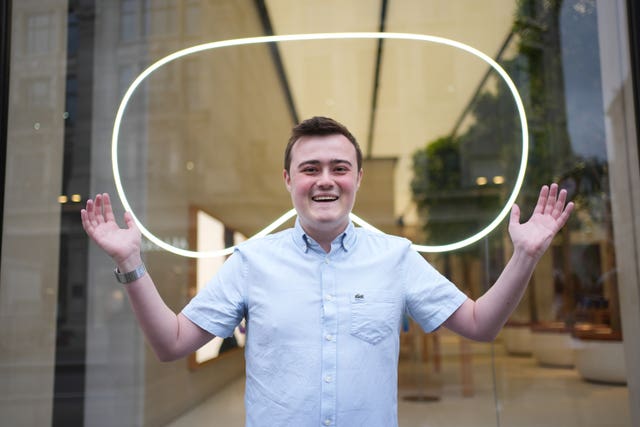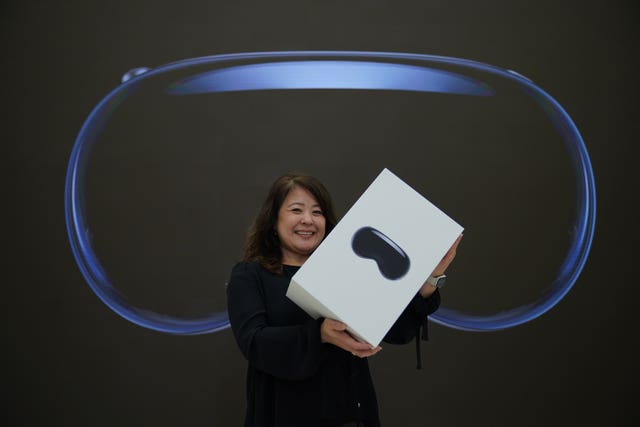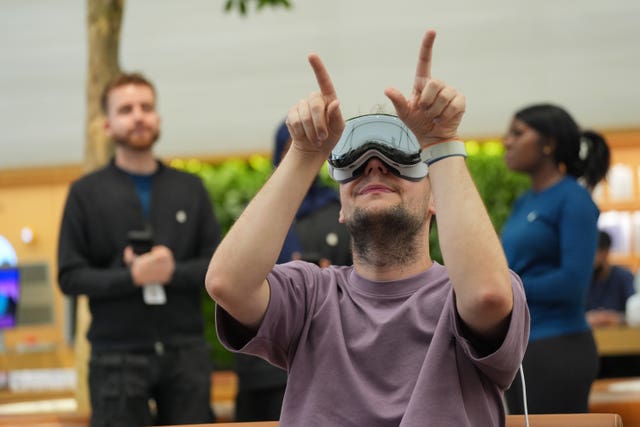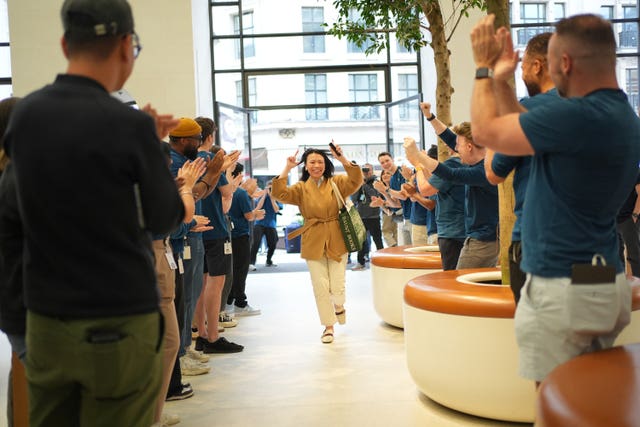Tech fans get first taste of Apple’s Vision Pro as headset comes to UK
The ‘spatial computing’ device starts at £3,499 and is controlled by the user’s eyes, hands and voice.

Apple’s Vision Pro headset, which blends the real world with digital content in front of the wearer’s eyes, has gone on sale in the UK for the first time.
The “spatial computing” device – which is in essence a wearable computer that overlaps apps and other content on top of the real world – starts at £3,499 and is controlled by the user’s eyes, hands and voice.
A small queue of seven eager fans waited outside Apple’s flagship Regent Street store in London on Friday morning as enthusiasts across the country got a taste of the first-of-its-kind device.

He told the PA news agency: “I think some stuff like Mac Virtual Display and the work side of things I’m really excited about.
“So I think it will really help with that. Also some of the media consumption stuff is an exciting part as well – so like movies, things like that. And then the gaming side.”
The Vision Pro offers more than 1,000 apps specifically made for the device and a catalogue of some 250 compatible games.

“I feel like I’m in a sci-fi film,” she added.
Customers who booked in advance had the opportunity to test the Vision Pro for free in-store with the assistance of Apple staff who helped them adjust to using finger gestures and eye movements to alter the environment around them.
The headset features built-in speakers and attaches using an adjustable headband, while a wire leads from the device to a battery pack which sits in the user’s pocket, enabling users to move around while wearing it.

Apple has highlighted the device’s potential as a personal large screen cinema or gallery for looking through photos and videos.
However, virtual, mixed or augmented reality headsets are still to truly catch on with the general public, and industry experts have said Apple’s first move into the space is not guaranteed to change that.
Ivan, 28, told the PA news agency he did not think the headset was “gimmicky”.

“It’s basically making things mobile once again, so you can do stuff on the work that you usually spend a lot of time doing.”
He said the technology felt like “having a home cinema without the need of buying the whole package”.





